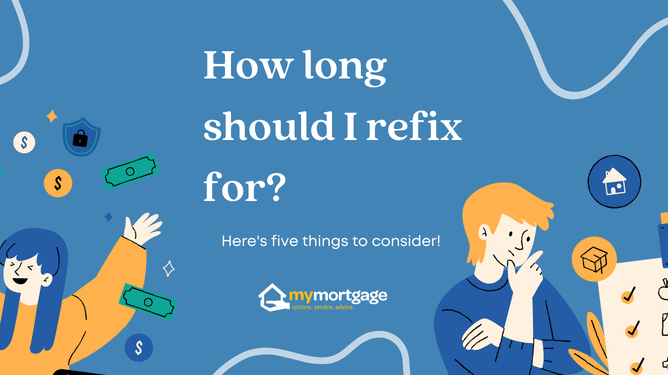For a long time now, it seems as if the Kiwi approach to refixing mortgages has been to simply refix at the lowest rate available at the time of rollover - Normally the 12 month rate!
At a time when interest rates were going down, this may have worked pretty well for most people...But as we all know, that's not the case so it's absolutely worth thinking a bit more about how you're going to refix and getting some advice from your mortgage adviser!
Here's five things we, as mortgage advisers, consider when coming up with a recommendation for you. It's worth noting that EVERYONE has a different situation so it's important to get personalised advice based on your own situation and the below is just general advice!
Interest Rates: Of course, first we look at the rates the bank has offered you. Interest rates are a significant factor in deciding how long to fix a mortgage. We compare these with what other banks are offering and make sure they are within the right range at the time.
Then we look at what rate has been offered across each fixed term period. In New Zealand the banks generally offer fixed terms of 1, 2, 3, 4 or 5 years along with some banks which offer a 6 or 18 month option.
We generally see rates in the shorter term (say 1 or 2 years) being a bit lower than those in the longer term (3, 4 or 5 years) but as of todays date, we are actually seeing the inverse - So higher rates in the shorter terms and lower rates in the longer terms.
The floating (or variable) rate tends to be the highest rate on offer, but provides the most flexibility so can suit some situations well.
Budget: Consider your budget and how much you can afford to pay each month. If you're expecting your income to increase in the short term you can probably afford to take a bit more risk and fix for a shorter term to give you an opportunity to review your home loan again sooner and hopefully take advantage of a lower rate at that time.
If you're expecting your income or budget to be restricted (a baby might be coming into the picture for example!) then perhaps a slightly longer term suits you better - this would give you more certainty over your budget for that period. This peace of mind can be really helpful during times of change in your life!
Future Plans: Consider your future plans before deciding on the length of your mortgage. If you plan on selling your home or refinancing in the near future, a shorter-term fixed-rate mortgage may be a better option.
You might be expecting a large windfall in the coming months (an inheritance for example - you lucky thing!) so you might want to think about making a lump sum payment on your home loan - so again, fixing for a shorter term may be best here.
However, if you plan on staying in your home for a long time and can't see any changes ahead a longer-term fixed-rate mortgage may provide more stability.
Remember, if you need to break your fixed term, there can be what we refer to as a "break fee" charged to you - essentially the bank is recouping interest that they've missed out on as you've repaid your loan early. These fees can vary massively but always worth avoiding if you can!
Flexibility & Structure: Fixed-rate mortgages typically have less flexibility than variable-rate mortgages. Before deciding on the length of your mortgage, consider your need for flexibility. Want to make a lump sum repayment soon? Have some savings set aside? Want to look at a refinance to another bank soon? All of these things that require flexibility should be considered before refixing.
The structure you opt for should be carefully considered, too. You don't simply need to refix your whole loan on the same term. You could opt to split your lending up into say a fixed portion and a floating portion. This would provide flexibility over the floating portion and certainty over the fixed portion and give you the best of both worlds.
Risk Tolerance: Consider your risk tolerance when deciding on the length of your mortgage. A longer-term fixed-rate mortgage may be more expensive in the long run if you're on a higher rate for a longer period, but it also provides more stability and predictability. On the other hand, a shorter-term fixed-rate mortgage may have lower overall costs but is subject to interest rate fluctuations.
Ultimately, the decision of whether to fix your mortgage and for how long for is a personal one that depends on your individual circumstances. By carefully considering the factors above, you can make an informed decision that aligns with your financial goals and future plans. We'd recommend you chat to one of our experienced mortgage advisers to help you make the decision easier!
Contact us below to get personalised advice on your refix!

